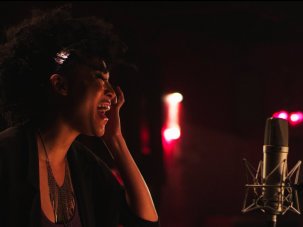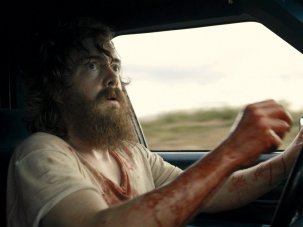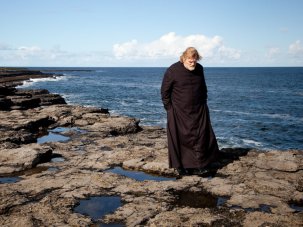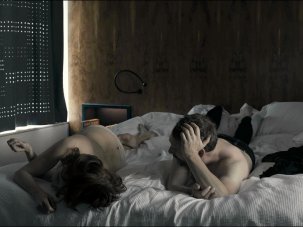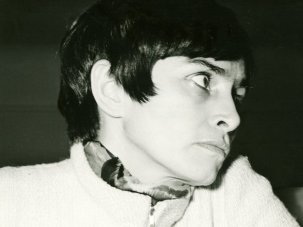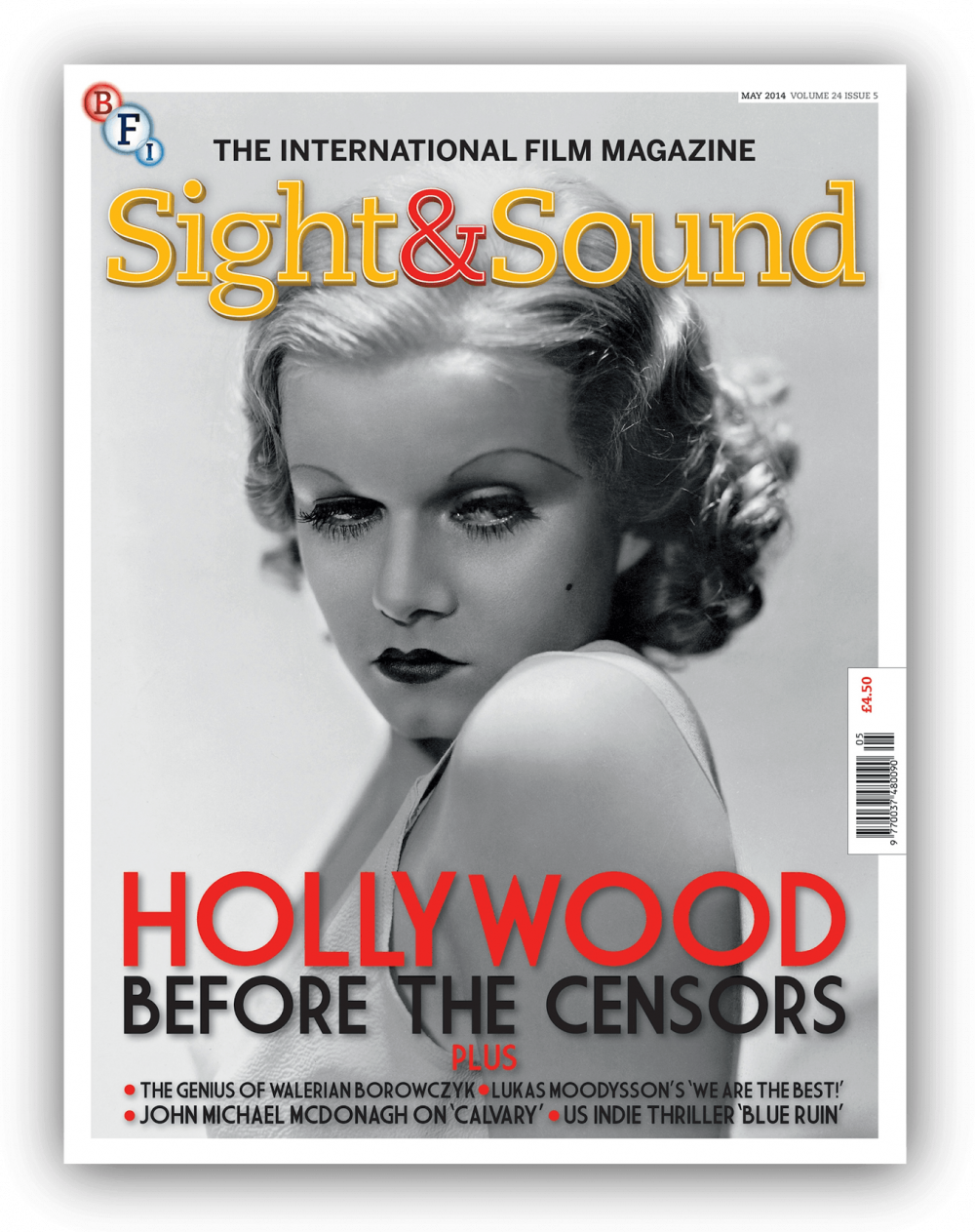
With the timelessly seductive and glamorous Jean Harlow gracing the cover, our May issue invites you to succumb to the allure of the dangerous and the forbidden, as our Deep Focus feature explores the heady ‘pre-Code’ period in early-1930s Hollywood, when the puritanical restrictions of the so-called Hays Code were gleefully and roundly ignored by the studios.
Posted to subscribers and available digitally 4 April
→
→ Sign up / log in
On UK newsstands 8 April
Here we find a different Hollywood cinema – naughtier, rougher-edged and more shocking than anything audiences would see again until the 1960s. It was a period in which the gangster first burst on to movie screens; when horror movies were truly horrid; when the bitter realities of the Great Depression were laid bare in gritty social dramas; and when bad girls, adulterers, gold diggers and charming con artists ran amuck.
This was also a period which saw studios define their particular styles, and new stars burst onto screens: soon to be legendary figures such as Harlow, Barbara Stanwyck, James Cagney, Clark Gable, Mae West, Joan Blondell and Edward G. Robinson, as well as figures such as the “king of pre-Code” Warren William and Ruth Chatterton, whose stars burned brilliantly in the pre-Code era alone.
As our Deep Focus season opens at BFI Southbank, London, Mike Mashon sets out the historical context of this most fascinating period in Hollywood history, James Bell explores the films’ various transgressive themes and Dan Callahan surveys the stars whose careers were made and lost in those wild years. As Mae West might have said, when Hollywood was good, it was very good, but when it was bad, it was better…
A filmmaker whose work always challenged puritans and the censors was the Polish maverick Walerian Borowczyk, whose films ranged from remarkably inventive animations through surreal fairy tales and on to unflinchingly provocative and explicit erotica. Eight years after his death, the visionary director’s magnificently perverse, confrontational and often misunderstood narratives are reappraised and contextualised by David Thompson.
The famed British producer Jeremy Thomas is a maverick of a different kind. In the second half of an extensive career overview, Thomas talks to Nick James about his relationships with Nicolas Roeg, Bernardo Bertolucci and David Cronenberg, and why he has had to “mutate or die” in order to continue working successfully in an increasingly conformist modern industry.
A filmmaker who has consistently shirked off predictability and conformity is the Swedish director Lukas Moodysson, who has returned to the observant, upbeat charm of his early films with We Are the Best!, about a trio of young female misfits in Sweden in the early 1980s who decide to form a punk band. He talks to Ashley Clark about the punk spirit and keeping his internal engine burning.
The Irish director John Michael McDonagh is another filmmaker who seems intent on pursuing his own path. Following the well-received The Guard, he talks to Trevor Johnston about the influences behind his latest film Calvary, a tale of a priest living under the threat of death – from Melville and Bresson to Home and Away.
Our Wide Angle section includes a profile of artist filmmaker Hito Steyerl, a report from this year’s AV festival and a reappraisal of Chris Marker’s San Soleil.
Our comprehensive reviews pages feature in-depth assessments of Joanna Hogg’s Exhibition, the Oscar-winning documentary 20 Feet from Stardom and the exciting new US indie thriller Blue Ruin by director Jeremy Saulnier.
In the DVD and Blu-ray section we celebrate the revival of Bill Forsyth’s debut feature That Sinking Feeling, as well as his much-loved breakthrough Gregory’s Girl.
All this and much, much more…
-
Sight & Sound is now available in digital editions for Apple iOS, Android and Kindle Fire as well as computer desktops. Scroll this gallery to browse this issue’s sections.
-
RUSHES: Blue Ruin’s Jeremy Saulnier talks revenge; resurrected animation classic The King and the Mockingbird; five key films about women in New York; Hannah McGill decodes gloves in the movies; Mark Cousins gets to grips with unclassifiable cinema.
-
THE INDUSTRY: the development of Tracks; The Grand Budapest Hotel’s box-office numbers; Terence Davies and tax breaks; the man who put Flemish film on the map.
-
Before the censors clamped down, Hollywood talkies portrayed America with unprecedented frankness and realism. Mike Mashon sets out the historical context, James Bell samples the films, and Dan Callahan surveys the stars whose careers were made and lost.
-
John Michael McDonagh discusses the influences behind Calvary, his tale of a priest living under the threat of death – from Melville and Bresson to Home and Away. By Trevor Johnston.
-
Eight years after his death, the visionary Polish director’s perverse, confrontational narratives are ripe for reappraisal. By David Thompson.
-
Lukas Moodysson has returned to the observant, upbeat charm of his early films with We Are the Best!, about a trio of young female misfits in Sweden in the early 1980s who decide to form a punk band. By Ashley Clark.
-
In the second half of an extensive career overview, the veteran producer talks to Nick James about his relationships with Nic Roeg, Bernardo Bertolucci and David Cronenberg, and why he’s had to ‘mutate or die’ in an increasingly conformist industry.
-
WIDE ANGLE: the obsessions of Hito Steyerl; listening closely to Chris Marker’s Sans Soleil; silence is golden in Bo’ness in Scotland; digging the ‘Extraction’ theme at the AV Festival.
-
FILMS OF THE MONTH: Blue Ruin, Exhibition, Ilo Ilo, The Strange Colour of Your Body’s Tears, plus 36 more new releases reviewed.
-
HOME CINEMA: Bill Forsyth’s early teen dreams, the unclassifiable Elio Petri, two TV versions of Frankenstein, plus 12 more releases.
-
BOOKS: Naked Cinema: Working with Actors, It Doesn’t Suck: Showgirls; Fosse.
-
ENDINGS: Carmen Gray on Daisies.
Features
COVER FEATURE: Deep Focus: Pre-Code Hollywood
In the brief window between the announcement of the Hays Code censorship guidelines in 1930 and the creation of a body with sufficient resources to implement them in 1934, Hollywood studios were able to portray America with a realism previously unseen in its history. Here, Mike Mashon explores the history of demands for a system of moral oversight and shows how conservatives lobbied to enforce it, while James Bell examines the new-found freedoms filmmakers enjoyed in their depiction of taboo subjects from adultery and poverty to crime.
Plus: Changing of the guard
A new roster of stars shot to fame in the pre-Code era, but some soon started to flounder in the clampdown that followed. By Dan Callahan.
God’s lonely man
John Michael McDonagh’s follow-up to The Guard tells the blackly comic tale of a rural Irish priest who is threatened with death by a vengeful parishioner. Here, the director outlines his influences, including Hitchcock, Melville, Bresson… and Home and Away. By Trevor Johnston.
Forbidden fruit: the wild alchemy of Walerian Borowczyk
The late Polish director may have alienated some critics with his idiosyncratic career trajectory – travelling from masterful short animations and the visual poetry of his early features Goto, Isle of Love and Blanche to the dismal softcore travesty of Emmanuelle 5 – but his perverse, confrontational narratives are now ripe for reappraisal. By David Thompson.
Punk’s not dead
After more than a decade of dark, difficult work from Lukas Moodysson, the director has returned to the observant, upbeat charm of his earliest films with We Are the Best!, a tale of a trio of young female misfits in Sweden in the early 1980s who decide to form a band. By Ashley Clark.
The Sight & Sound Interview: Jeremy Thomas part 2 – The making of a super-producer
In the concluding part of our career overview, the veteran producer outlines his rapidly developing profile following his return from Australia where his feature debut, Mad Dog Morgan, was shot in 1975. He discusses his longstanding creative relationships with Nicolas Roeg, Bernardo Bertolucci and David Cronenberg, laments the passing of a wild era of maverick filmmaking led by ‘extremists’ such as Sam Peckinpah, and explains why he has had to ‘mutate or die’ in order to continue working successfully in an increasingly conformist modern industry. Interview by Nick James.
Regulars
Editorial
Twittercism
Rushes
In the frame: Adventures in wonderland
After six decades, the French animated classic The King and the Mockingbird finally makes it to British screens in its intended form. By Andrew Osmond.
Object lesson: Glove stories
The snugness of a hand in a glove often has an erotic charge – but the associations tend to be destructive rather than sentimentally intimate, says Hannah McGill.
The five key…: Women in New York
As Claudia Weill’s 1978 Girlfriends gets a rare screening in London, Violet Lucca celebrates movies about women trying to make it in NYC.
Interview: A dish best served cold
To get his revenge drama Blue Ruin made, director Jeremy Saulnier first had to try to disown his ‘goofy’ horror-comedy debut. By Catherine Bray.
Dispatches: Generic mutations
When a film blends numerous stylistic ingredients it quickly becomes unclassifiable, creating a kind of cubist cinema, writes Mark Cousins.
The industry
Development tale: Tracks
Robyn Davidson’s nine-month trek across Australia was nothing next to her book’s near 30-year journey to the screen, reports Charles Gant.
The numbers: The Grand Budapest Hotel
Brewster: Sunrise on ‘Sunset’
How a cherished project by an important filmmaker just managed to survive a ‘clarification’ of tax regulations. By Ben Roberts.
Profile: Pierre Drouot
Belgian cinema is flourishing as never before – and the head of the Flanders Audiovisual Fund can claim a lot of the credit. By Geoffrey Macnab.
Wide angle
Artists’ moving image: After the crash
Straddling cinema and gallery, Hito Steyerl sifts ideas, images and objects from the detritus of contemporary capitalism. By Nina Power.
Soundings: Get my drift
Often described as an ‘essay film’, Chris Marker’s Sans Soleil is more like a great, seemingly haphazard, jazz performance. By Daniel Barrow.
Primal scream: The world of silent cinema
A silent film festival on the edge of the Firth of Forth takes place in a venue that’s the cinematic equivalent of a hug. By Bryony Dixon.
Festival: A study in terra
This year’s AV Festival in the North-East of England, exploring the theme of ‘Extraction’, proved anything but earthbound. By Isabel Stevens.
Reviews
Films of the month
Blue Ruin
Exhibition
Ilo Ilo
The Strange Colour of Your Body’s Tears
plus reviews of
After the Night
Almost Married
Calvary
Captain America The Winter Soldier
Cupcakes
Dangerous Acts Starring the Unstable Elements of Belarus
Divergent
An Episode in the Life of an Iron Picker
Escape from Planet Earth
The Informant/Gibraltar
The Invisible War
Ironclad 2 Battle for Blood
Khumba
The Last Day on Mars
Locke
Looking for Light Jane Bown
The Love Punch
The Lunchbox
Magic Magic
The Motel Life
Muppets Most Wanted
Non-stop
Omar
Pioneer
The Quiet Ones
The Raid 2 Berandal
The Sea
300 Rise of an Empire
Tracks
20 Feet from Stardom
Veronica Mars
We Are the Best!
We Are the Freaks
Wrinkles/Arrugas
You & Me Forever
Yves Saint Laurent
DVD features
Boys’ own adventures: That Sinking Feeling + Gregory’s Girl
The cinema of Bill Forsyth affectionately celebrates the lure of imaginative escape and improbable teen dreams. Reviewed by Edward Lawrenson.
Rediscovery
Deadly games: The 10th Victim + Investigation of a Citizen Above Suspicion
Impossible to pigeonhole, Elio Petri has long been neglected by film fans. Two welcome releases should change that, says Michael Brooke.
plus reviews of
Dead of Night
The Ealing Studios Collection Volume 1
Foreign Correspondent
Man in the Dark
Many Wars Ago
Phantom of the Paradise
Roma, Seven Samurai
This Is Not a Dream
Television
It’s alive! Frankenstein: the True Story + Frankenstein
Different takes on the Frankenstein story demonstrate how film and television constantly refashion Mary Shelley’s infamous creature
plus reviews of
Jack the Ripper
The Mistress
Nichols
Books
Nick James enjoys Sally Potter’s manual on directing actors, Ben Walters joins a chorus of approval for Paul Verhoeven’s Showgirls, Nick Pinkerton takes to the floor with a major biography of Bob Fosse
Letters
Mark Cousins: Peter Pan, Mark Cousins vs Adorno, more television please, BFI Flare vs Dallas Buyers Club and more.
Endings
Daisies
One of the Prague Spring’s most irreverent flowerings, Daisies lets its anarchic, psychedelic tendencies play themselves out with a bang. By Carmen Gray.
Further reading
-
The Digital Edition and Archive quick link
Log in here to your digital edition and archive subscription, take a look at the packages on offer and buy a subscription.




